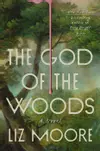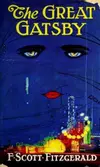
Eric

Really loved the setup of this novel, its incredibly well-imagined setting and its characters (at least all the non-rich ones), and the early depictions of summer camp life. The writing is intentionally suspenseful, with chapters ending on cliffhangers and the next chapter jumping to a different timeline and character’s point of view, making the book compulsive to keep reading. Because of all the timelines and perspectives, the story also feels very deep, lived-in and cinematic.
But once the girl’s disappearance and the (overlong) backstory of Alice and Peter are established across Parts I and II, the story becomes more than anything a police procedural, spending a lot of time with Judyta as she puts together the pieces of both the “current” case, of a missing 13-year-old girl, and the now-cold case of her younger brother’s disappearance over a decade earlier.
It is also a stinging critique of “old money” families and how terrible they are in so many ways. On this theme I think the author is a little too heavy-handed (the rich men are, every one of them, emotionless blocks of wood); I think it would be a bit more effective if they weren’t such caricatures.
But I very much enjoyed all the more subtle ways the author gives real, nuanced empowerment to the various women in the story more than the men: Almost all of the book’s shifting perspectives are from women characters, despite plenty of men being part of the story, and the way the author imbues them all with unique examples of strength and unapologetic self-reliance is applaudable.
Takeaway line: ”The Hewitts don’t need to rely on anyone but themselves. / It’s the Van Laars, and families like them, who have always depended on others.” (453)
Really loved the setup of this novel, its incredibly well-imagined setting and its characters (at least all the non-rich ones), and the early depictions of summer camp life. The writing is intentionally suspenseful, with chapters ending on cliffhangers and the next chapter jumping to a different timeline and character’s point of view, making the book compulsive to keep reading. Because of all the timelines and perspectives, the story also feels very deep, lived-in and cinematic.
But once the girl’s disappearance and the (overlong) backstory of Alice and Peter are established across Parts I and II, the story becomes more than anything a police procedural, spending a lot of time with Judyta as she puts together the pieces of both the “current” case, of a missing 13-year-old girl, and the now-cold case of her younger brother’s disappearance over a decade earlier.
It is also a stinging critique of “old money” families and how terrible they are in so many ways. On this theme I think the author is a little too heavy-handed (the rich men are, every one of them, emotionless blocks of wood); I think it would be a bit more effective if they weren’t such caricatures.
But I very much enjoyed all the more subtle ways the author gives real, nuanced empowerment to the various women in the story more than the men: Almost all of the book’s shifting perspectives are from women characters, despite plenty of men being part of the story, and the way the author imbues them all with unique examples of strength and unapologetic self-reliance is applaudable.
Takeaway line: ”The Hewitts don’t need to rely on anyone but themselves. / It’s the Van Laars, and families like them, who have always depended on others.” (453)

It's rare that a book has me actually crying, but this book is just heartbreaking. Layer upon layer of family members quietly neglecting the simplest showings of care and recognition in each other, who are starved for the smallest gesture of empathy. It is lovingly written and worth reading. My heart breaks for Hannah most of all. What guts you is how true it feels to families you've known in life.
It's rare that a book has me actually crying, but this book is just heartbreaking. Layer upon layer of family members quietly neglecting the simplest showings of care and recognition in each other, who are starved for the smallest gesture of empathy. It is lovingly written and worth reading. My heart breaks for Hannah most of all. What guts you is how true it feels to families you've known in life.

Trust isn't a typical novel; it's broken up into 4 mini-books all told from a different perspective and with a different voice. The first one is the longest and written like a (kinda old-fashioned, tedious) biography of a 1920s financial titan. The next three tell that same financial titan's story from different perspectives, filling in a lot of color and calling into question a lot of the claims of the first mini-book.
I'd say the novel starts getting interesting once the 3rd mini-book starts revealing what's really going on in the first two books, and the 4th book provides some satisfying answers and closure to the story as a whole.
With that, I can't say I fully enjoyed reading Trust, however I have thought plenty about the novel since I finished it, both immediately after and as a talking-point to reference for a long while since. It's a great example of how all stories, like each of these mini-books, can be molded to make the truth fit whatever narrative its writer wants to tell (or is capable of telling from their limited, or self-centered, perspective).
By the end of the book you understand a lot more about what kind of person Benjamin Rask/Andrew Bevel really was, and how the people in his life were much different than the original biography (book 1), and Andrew's follow-up autobiography (book 2), suggest.
Trust isn't a typical novel; it's broken up into 4 mini-books all told from a different perspective and with a different voice. The first one is the longest and written like a (kinda old-fashioned, tedious) biography of a 1920s financial titan. The next three tell that same financial titan's story from different perspectives, filling in a lot of color and calling into question a lot of the claims of the first mini-book.
I'd say the novel starts getting interesting once the 3rd mini-book starts revealing what's really going on in the first two books, and the 4th book provides some satisfying answers and closure to the story as a whole.
With that, I can't say I fully enjoyed reading Trust, however I have thought plenty about the novel since I finished it, both immediately after and as a talking-point to reference for a long while since. It's a great example of how all stories, like each of these mini-books, can be molded to make the truth fit whatever narrative its writer wants to tell (or is capable of telling from their limited, or self-centered, perspective).
By the end of the book you understand a lot more about what kind of person Benjamin Rask/Andrew Bevel really was, and how the people in his life were much different than the original biography (book 1), and Andrew's follow-up autobiography (book 2), suggest.

Trust isn't a typical novel; it's broken up into 4 mini-books all told from a different perspective and with a different voice. The first one is the longest and written like a (kinda old-fashioned, tedious) biography of a financial titan. The next three tell that same financial titan's story from different perspectives, filling in a lot of color and disillusioning a lot of the claims of the first mini-book.
I'd say the novel starts getting interesting once the 3rd mini-book starts revealing what's really going on in the first two books, and the 4th book finally provides some answers and closure to the story as a whole.
With that, I can't say I fully enjoyed reading Trust, however I have thought plenty about the novel since I finished it, both immediately after and as a talking-point to reference for a long while since. It's a great example of how all stories, like these mini-books, can be shaped to make reality fit whatever narrative the writer wants to tell.
By the end of the book you understand a lot more about what kind of person Andrew Bevel really was, and how the people in his life were much different than the original biography (book 1), and Andrew's follow-up autobiography (book 2), suggest.
Trust isn't a typical novel; it's broken up into 4 mini-books all told from a different perspective and with a different voice. The first one is the longest and written like a (kinda old-fashioned, tedious) biography of a financial titan. The next three tell that same financial titan's story from different perspectives, filling in a lot of color and disillusioning a lot of the claims of the first mini-book.
I'd say the novel starts getting interesting once the 3rd mini-book starts revealing what's really going on in the first two books, and the 4th book finally provides some answers and closure to the story as a whole.
With that, I can't say I fully enjoyed reading Trust, however I have thought plenty about the novel since I finished it, both immediately after and as a talking-point to reference for a long while since. It's a great example of how all stories, like these mini-books, can be shaped to make reality fit whatever narrative the writer wants to tell.
By the end of the book you understand a lot more about what kind of person Andrew Bevel really was, and how the people in his life were much different than the original biography (book 1), and Andrew's follow-up autobiography (book 2), suggest.

Really liked the writing and the suspense the author sets up throughout the first half, but really wish it didn't take the supernatural turn it took in the second half. Keeping the monster on the periphery of the action (like it was the night Alicia choked Jen in her sleep) would've kept the same tense, ominous tone but allowed me to believe the monster was purely metaphoric/imagined by Remy instead of the actual antagonist. Maybe I'm biased because I don't like supernatural/"monster" horror to begin with, but it felt unnecessary to turn the second half into a literal monster story when Remy and Alicia are set up to be plenty monstrous themselves.
Really liked the writing and the suspense the author sets up throughout the first half, but really wish it didn't take the supernatural turn it took in the second half. Keeping the monster on the periphery of the action (like it was the night Alicia choked Jen in her sleep) would've kept the same tense, ominous tone but allowed me to believe the monster was purely metaphoric/imagined by Remy instead of the actual antagonist. Maybe I'm biased because I don't like supernatural/"monster" horror to begin with, but it felt unnecessary to turn the second half into a literal monster story when Remy and Alicia are set up to be plenty monstrous themselves.










